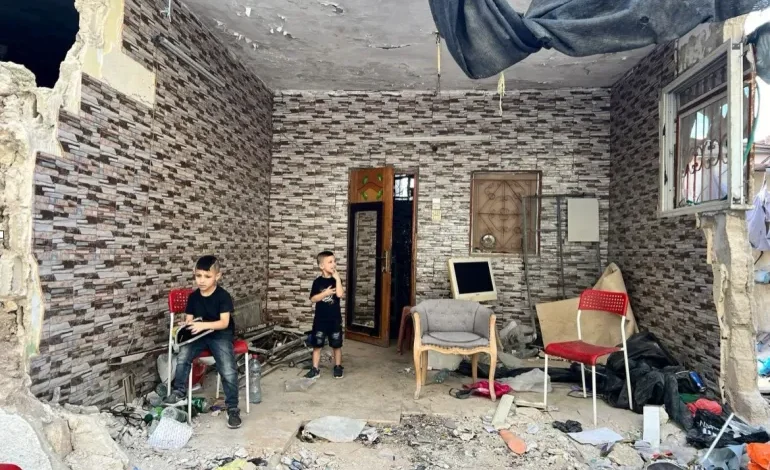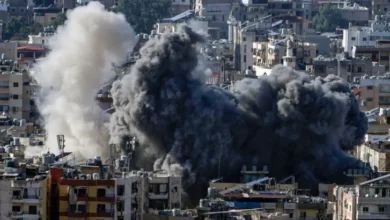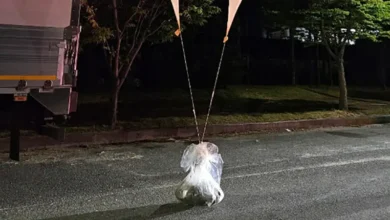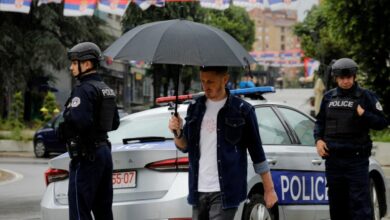Half-life, half-house: Portrait of a Palestinian family after Israeli raids

In the heart of the occupied West Bank’s Tulkarem refugee camp, in the Hammam neighbourhood that is a frequent target of Israeli raids, stands the home of 36-year-old former police officer Akram Nassar and his two children.
The street leading to the house is littered with rubble, broken pipes and other debris, and sewage flows down its side.
Closer to the house, Akram’s two sons, five-year-old Rahim and four-year-old Bara, appear. Bara is in shorts and a T-shirt in the mild, mid-September weather.
They are visible from the street because the entire front wall – and a good chunk of the side wall – of their house is missing after Israeli raids tore them off.
Their exposed front room is barren – except for two red plastic chairs; a single grey armchair; an old computer monitor without its casing; and a black-framed mirror hanging on the damaged interior door.
The tiles on the two remaining walls offer a glimpse of what the house may have looked like and how it was cared for in the past.
On September 2, an Israeli soldier used a bulldozer to destroy the facade of Akram’s house, like several others on the street.
Akram’s barely standing house, with none of the privacy or protection the idea of home conjures, fits in with the devastated landscape of Tulkarem.
Since October 7, the Israeli military’s “counter-terror” raids have damaged or destroyed most dwellings and infrastructure in the refugee camp.
Every one of Tulkarem’s many narrow alleys is lined with houses and shops missing walls, doors or windows.
Many buildings are completely uninhabitable. Some families, like Akram’s, try to survive in the ruins of their homes, not knowing what the next raid will bring.
Akram appears in the front room, carrying two plastic buckets. He steps out with his two boys and they walk to the corner to fetch some water from a tank donated by the Palestinian Agricultural Relief Committee.
When they get back, Akram goes into the small kitchen to make some coffee, the smell of burning still lingers in the air and scorch marks are visible on the walls.
Coffee is a rare luxury they could still enjoy in their home, Akram says. “Coffee is easy to make, I can still prepare it in my destroyed kitchen,” he says.
“As for meals, we usually eat at my mother’s house, just … in the alley opposite our house.”
Akram and his wife separated three years ago, and he has kept the children.










